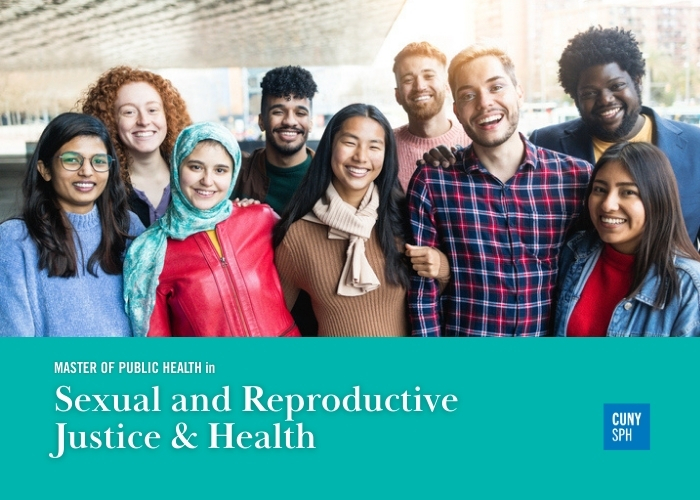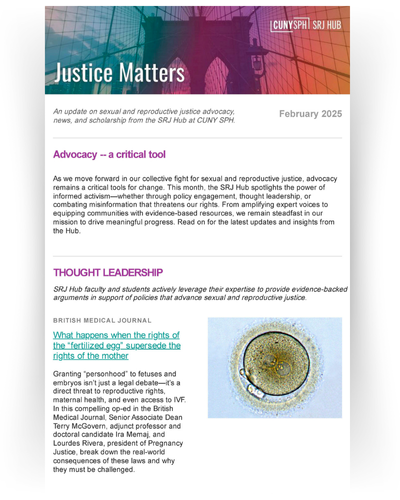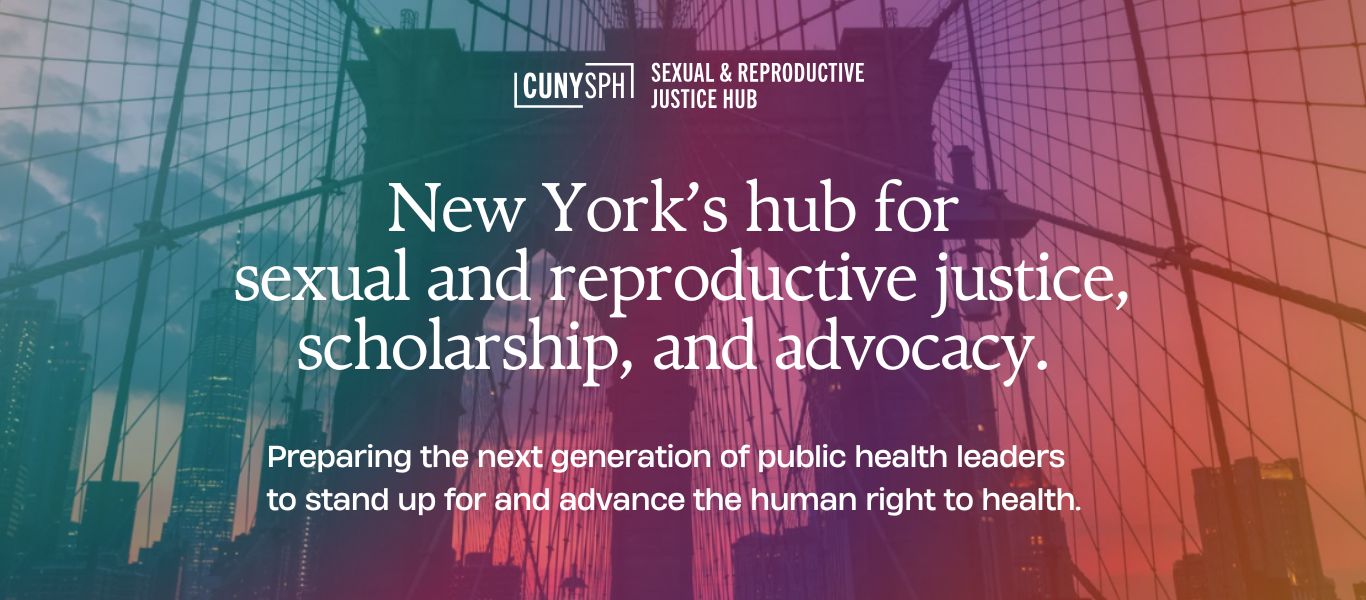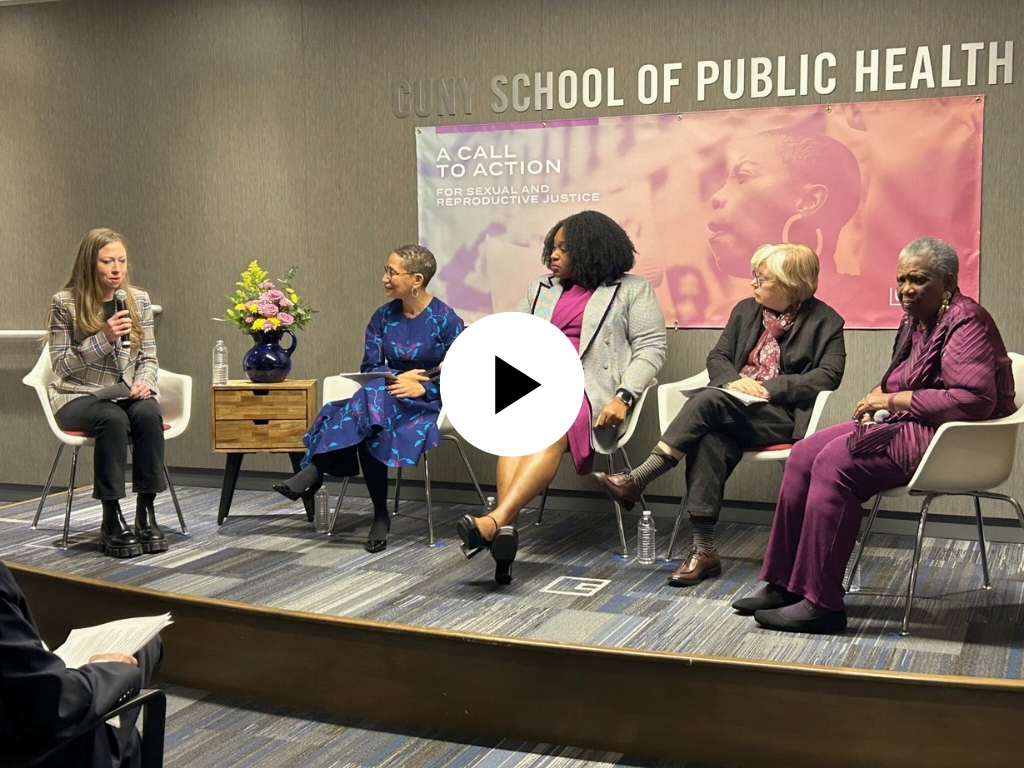Sexual & Reproductive Justice Hub
CUNY SPH is New York’s hub for sexual and reproductive justice. Protecting the right to reproductive autonomy is critical. In our post-Dobbs world, reproductive health injustices abound, disproportionately burdening people of color, adolescents, and those with few financial resources. CUNY SPH’s core mission is to advocate for policy and action that advances social justice and improves health outcomes for all, and we are at the center of the fight for reproductive justice. The CUNY SPH Sexual and Reproductive Justice Hub, or the SRJ Hub, coordinates solutions-oriented scholarship, training, and advocacy, centering the lived experiences of women of color and funding their and other marginalized people’s work.
Announcing the MPH Concentration in Sexual and Reproductive Justice & Health


Events & Recordings
The SRJ Hub is proud to host sexual and reproductive justice leaders and visionaries for engaging and thought-provoking discussions. Click here to view recordings of past webinars, including our SRJ Voices series.
Keep an eye on the SRJ Hub calendar for upcoming events.


